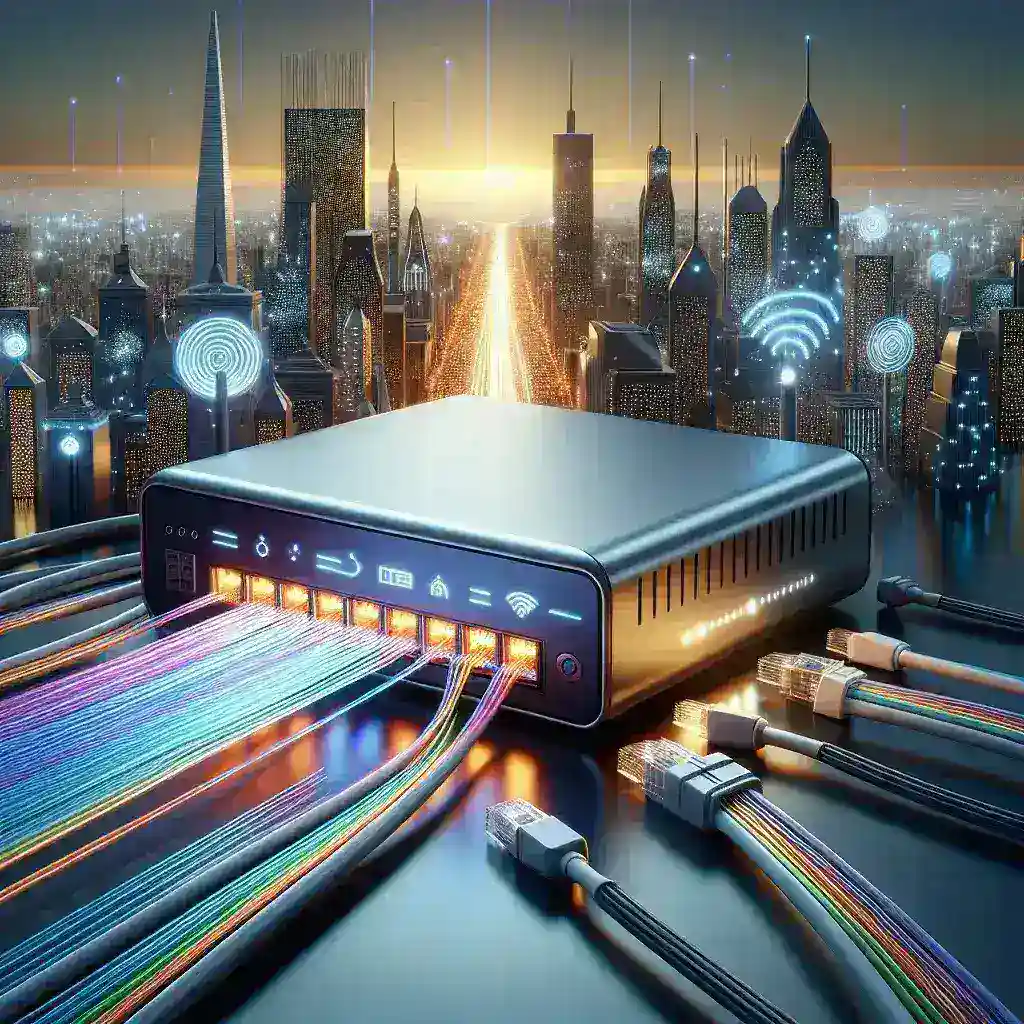The Future of Connectivity: Wi-Fi 7 Gateway Launch Timelines
The rollout of Wi-Fi 7 technology is set to transform the way we connect to the internet, and major cable and fiber internet service providers (ISPs) are leading the charge. With faster speeds, lower latency, and improved connectivity, Wi-Fi 7 promises to enhance the user experience for both residential and commercial customers. This article delves into the latest timelines announced by ISPs for launching Wi-Fi 7 gateways in major metropolitan areas, the benefits of adopting this new technology, and what it means for the future of internet connectivity.
Understanding Wi-Fi 7: A New Era of Wireless Technology
Wi-Fi 7, also known as 802.11be, represents a significant upgrade over its predecessor, Wi-Fi 6. Designed to operate in the 2.4 GHz, 5 GHz, and 6 GHz bands, Wi-Fi 7 offers several advantages:
- Higher Throughput: Wi-Fi 7 supports a maximum throughput of up to 30 Gbps, making it ideal for high-bandwidth applications like 8K video streaming and virtual reality gaming.
- Enhanced Multi-Device Connectivity: With multi-link operation, Wi-Fi 7 can connect multiple devices simultaneously without compromising performance.
- Lower Latency: The technology reduces latency to ensure smoother online experiences, especially for gaming and video conferencing.
Key Players in the Wi-Fi 7 Rollout
Several prominent cable and fiber ISPs have announced their plans to launch Wi-Fi 7 gateways. Here are some of the key players:
1. Comcast Xfinity
Comcast has been at the forefront of the Wi-Fi 7 movement, announcing that it will begin deploying new gateways by mid-2024 in major cities such as New York, Los Angeles, and Chicago. Xfinity aims to make high-speed internet more accessible and efficient in urban environments.
2. Verizon Fios
Verizon is set to launch its Wi-Fi 7 gateways in late 2024, focusing on metropolitan areas with dense populations. With a commitment to enhancing customer experience, Verizon is expected to prioritize seamless connectivity and high-speed internet access.
3. AT&T Fiber
AT&T has also revealed its plans for a Wi-Fi 7 rollout, targeting major metro areas starting in early 2025. The company aims to leverage its existing fiber infrastructure to provide faster and more reliable internet services.
Regional Rollout Timelines
The following is a breakdown of the anticipated timelines for Wi-Fi 7 gateway launches in major metros:
- New York City: Comcast and Verizon are both expected to deploy their Wi-Fi 7 gateways by mid-2024.
- Los Angeles: Comcast will lead the rollout in late 2024, followed by AT&T in early 2025.
- Chicago: Wi-Fi 7 deployments by Comcast are scheduled for mid-2024, with additional support from AT&T soon after.
Implications for Businesses and Consumers
The introduction of Wi-Fi 7 gateways will have a profound impact on both businesses and consumers. Here are some of the potential implications:
For Businesses
Businesses will benefit from faster and more reliable internet, enabling them to enhance productivity and improve customer experiences. With the ability to support more devices, companies can better cater to their employees and customers alike.
For Consumers
Consumers will experience faster internet speeds and improved streaming capabilities, making it easier to enjoy high-quality content and online gaming. Additionally, as more households adopt smart devices, the need for robust wireless connectivity becomes even more critical.
Challenges and Considerations
Despite the exciting advancements with Wi-Fi 7, several challenges remain:
- Infrastructure Costs: The cost of upgrading existing infrastructure to support Wi-Fi 7 may hinder some ISPs from implementing the technology swiftly.
- Device Compatibility: Not all devices currently on the market will support Wi-Fi 7, which may necessitate consumers to upgrade their hardware.
- Regulatory Issues: The rollout of new frequency bands requires regulatory approvals, which could delay deployment timelines.
The Future of Wi-Fi 7 in Urban Settings
As urban areas continue to evolve, the adoption of Wi-Fi 7 technology will play a pivotal role in shaping the digital landscape. The enhanced capabilities of Wi-Fi 7 will not only improve connectivity for users but also support the growth of smart cities. The integration of IoT devices, autonomous vehicles, and advanced communication systems will rely heavily on the robust infrastructure that Wi-Fi 7 promises to deliver.
Conclusion
The announcement of Wi-Fi 7 gateway launch timelines by major cable and fiber ISPs marks a significant milestone in the evolution of wireless technology. As ISPs prepare to upgrade their infrastructure, consumers and businesses alike can anticipate a new era of connectivity that fosters innovation, enhances experiences, and supports the growing demands of our digital world. By understanding the timeline and implications of Wi-Fi 7, users can better prepare for the future of internet connectivity in their metropolitan areas.

